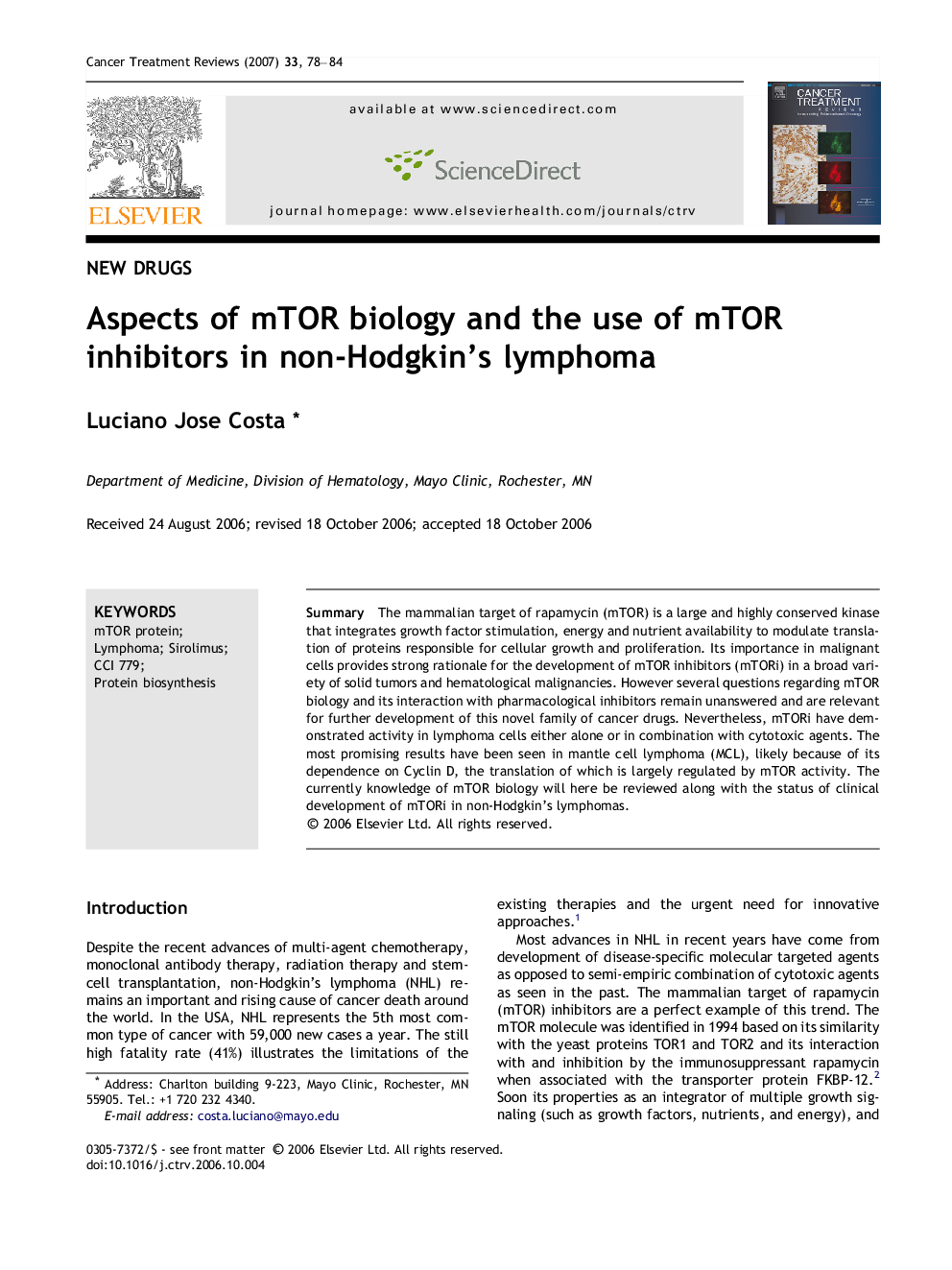| Article ID | Journal | Published Year | Pages | File Type |
|---|---|---|---|---|
| 3980872 | Cancer Treatment Reviews | 2007 | 7 Pages |
SummaryThe mammalian target of rapamycin (mTOR) is a large and highly conserved kinase that integrates growth factor stimulation, energy and nutrient availability to modulate translation of proteins responsible for cellular growth and proliferation. Its importance in malignant cells provides strong rationale for the development of mTOR inhibitors (mTORi) in a broad variety of solid tumors and hematological malignancies. However several questions regarding mTOR biology and its interaction with pharmacological inhibitors remain unanswered and are relevant for further development of this novel family of cancer drugs. Nevertheless, mTORi have demonstrated activity in lymphoma cells either alone or in combination with cytotoxic agents. The most promising results have been seen in mantle cell lymphoma (MCL), likely because of its dependence on Cyclin D, the translation of which is largely regulated by mTOR activity. The currently knowledge of mTOR biology will here be reviewed along with the status of clinical development of mTORi in non-Hodgkin’s lymphomas.
